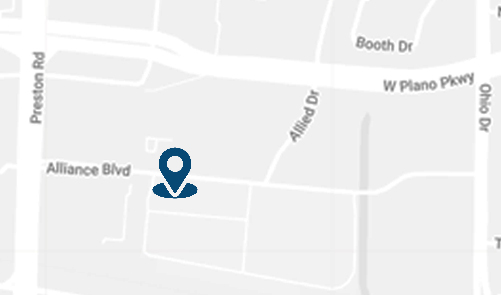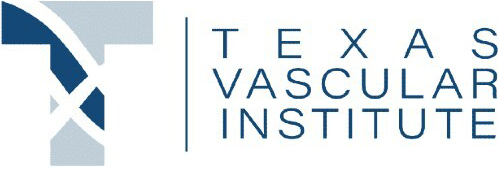By: Dr. Dev Batra | 01.29.23

Restless legs syndrome (RLS) is just what it sounds like. The condition, which is actually a sleep disorder, causes a compulsive urge to move your legs (or other parts of your body) when you try to sleep. And RLS can come along with other unpleasant physical sensations, such as itching, aching, burning, or the feeling that your skin is crawling.
Because RLS tends to be most severe when you’re in bed or sitting for extended periods, it becomes difficult to fall asleep, stay asleep, and feel refreshed in the morning.
At Texas Vascular Institute, interventional radiologist Dr. Dev Batra diagnoses and treats restless legs syndrome in his Dallas and Hurst, Texas, offices. He provides effective medical treatments so you can get a good night’s sleep. But he also wants you to know that you can make lifestyle adjustments to help you cope with RLS.
What causes restless legs syndrome (RLS)?
Genetics probably plays a significant role in causing RLS, as up to 92% of people who experience it have a first-degree relation who also has RLS. What’s more, those people with the link generally develop symptoms at a younger age than those without it.
Several medical conditions are also associated with RLS, including:
- Anemia (low iron)
- Kidney dysfunction
- Hypothyroidism
- Depression
- Diabetes
- Rheumatoid arthritis
- Peripheral neuropathy
- Fibromyalgia
- Parkinson’s disease
- Pregnancy
In addition, caffeine, nicotine, and alcohol can increase the risk of developing or worsening RLS, as can antidepressants, allergy drugs, and anti-nausea medications.
What’s even more interesting, though, is that many people with vein disease also develop restless legs syndrome. Fortunately, studies show RLS can be effectively treated with therapies designed for chronic venous insufficiency (CVI), a circulatory system condition that results in insufficient blood flow to the extremities. That may be because vein disease inflames the nerves, muscles, and other soft tissues in your legs, producing uncomfortable sensations.
That’s why, when you come into Texas Vascular Institute for an evaluation, Dr. Batra looks for signs of vein disease using vascular ultrasound to check for indications of CVI, deep vein thrombosis (DVT), or other vascular health problems.
Lifestyle adjustments to help you cope with restless legs syndrome
We always start with conservative, drug-free treatments, especially if your symptoms are mild. Try the following:
- Get regular exercise, but avoid intense workouts within a few hours of going to bed
- Practice good sleep habits: don’t read, watch TV, or be on your computer or phone while in bed
- Avoid or limit caffeine, nicotine, and alcohol
- Apply a heating pad or cold compress to your legs, or rub them to relieve discomfort
- Soak in a warm tub
- Consider acupressure, massage, and light stretching to ease symptoms
- Take magnesium supplements
- Reduce stress
If you have iron-deficient anemia, iron supplementation may also help.

Vein-related treatment options
As we’ve already mentioned, treating underlying vein diseases, such as varicose veins or deep vein thrombosis, may have a positive effect on RLS symptoms. A National Sleep Foundation study found that 98% of patients who received treatment for vein issues also noticed a decrease in RLS symptoms.
At Texas Vascular Institute, some vein treatments we offer include:
- Ultrasound-guided sclerotherapy
- Compression stockings
- ClosureFast™ thermal vein closure
- VenaSeal™
If your legs won’t stay still despite your best efforts to fall asleep, there’s hope. Contact Texas Vascular Institute for a restless legs syndrome evaluation by calling us at 972-646-8346 or book online with us today.
Read more blogs
Why Are My Veins Blue?
Wondering why your veins look blue under your skin? Learn the science behind vein color, how light affects what you see, and what it means for your health.
10 Warning Signs Of Poor Circulation And How To Fix It
Have you ever noticed your feet always feel cold, or your legs cramp up when walking? These could be warning signs of poor circulation, a condition that can impact your daily life and overall health.
Leg Pain Keeping You Up at Night?
Are restless, aching legs keeping you from a good night’s sleep? Nighttime leg pain can interfere with your rest, affecting your health, mood, and ability to take on daily activities. While there can be various causes, nighttime leg pain - especially when accompanied by feelings of heaviness, throbbing, or itchiness - could point to a vein issue.
WHAT OUR PATIENTS
have to say
Texas Vascular Institute always appreciates feedback from our valued patients. To date, we’re thrilled to have collected 378 reviews with an average rating of 5 out of 5 stars. Please read what others are saying about Texas Vascular Institute below, and as always, we would love to collect your feedback.
Leave a Review
Amazing Practice
I'm very particular with my Healthcare and tend to be cautious with referrals to specialists. This office is amazing from the first point of contact. Their staff are friendly, professional and highly knowledgeable. Then the Dr is just as amazing as his staff, absolutely brilliant. Office manager Jessica has this office running like a well oiled machine and does so with a smile, an air of confidence, kindness and professionalism. Love this practice!!
- Richard G.

Beyond Thankful
Dr Batra and his staff are amazing! We are so grateful to have found him. Everyone is so kind and so caring and Dr Batra explains everything so well and does procedures with excellence. Beyond thankful to be under their care!!!
- Bitsy P.

Gold Standard
This is a gold standard for how a medical practice should be run. I was promptly seen at my scheduled time, my ultrasound was thorough and I received plenty of attention and care from the staff and Dr.Batra.
- Weronika L.
INSURANCE
We accept most major insurance plans. Please contact the medical office for all insurance related questions.









8330 Meadow Rd #100
Dallas, TX 75231
For Appointments: 972-798-4710
General Inquiries: 972-646-8346

809 West Harwood Rd, Suite 101,
Hurst, TX 76054
For Appointments: 972-798-4710
General Inquiries: 972-646-8346

4716 Alliance Blvd Suite #180,
Plano, TX 75093
For Appointments: 972-798-4710
General Inquiries: 972-646-8346

